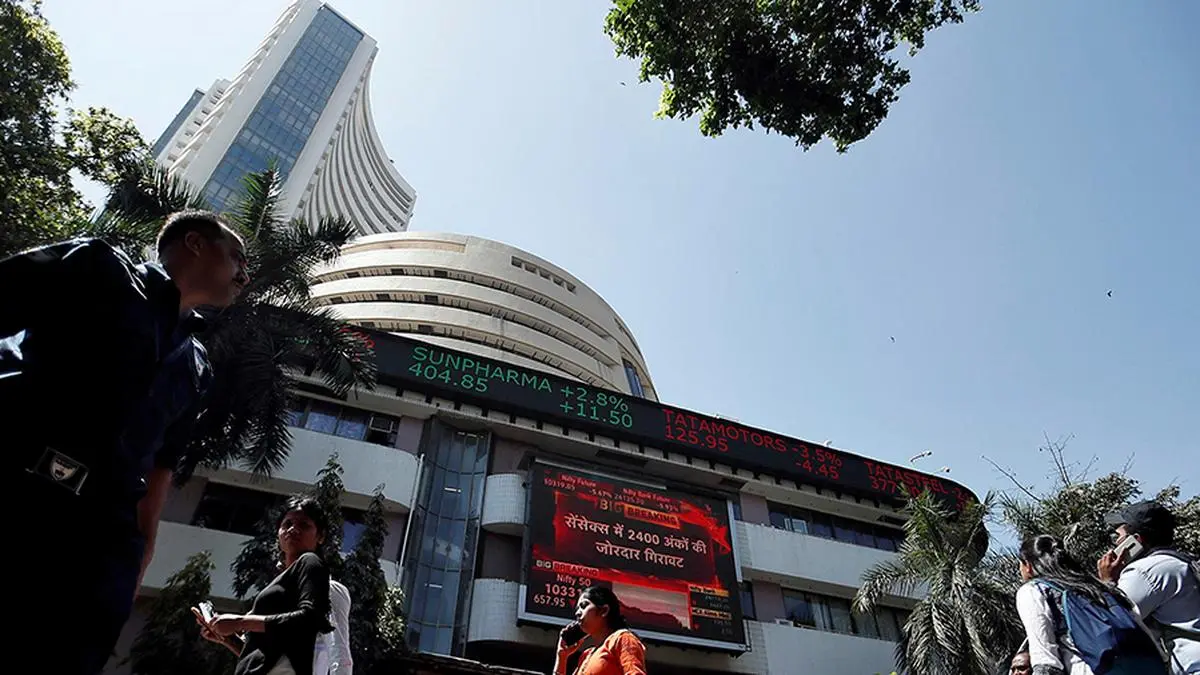 |
|
The Indian stock market experienced a significant rebound on Friday, with the Sensex surging 1,961 points (2.54%) to close at 79,117 and the Nifty rising 2.39% to 23,907. This marked the Nifty's best single-day gain in over five months and its best weekly gain (1.59%) in nearly two months. This sharp rally followed a steep selloff on Thursday, primarily driven by the decline in Adani Group stocks after US prosecutors filed charges of alleged bribery and fraud against Chairman Gautam Adani and others. The market's recovery can be attributed to a combination of factors, including bargain hunting by investors who saw an opportunity to accumulate beaten-down stocks, and positive global cues. Experts noted that buying emerged at lower levels in blue-chip stocks, with several index heavyweights, such as Reliance Industries (RIL), experiencing significant gains. The favorable US jobs data and the appreciation of the dollar also provided support to domestic IT stocks. All sectoral indices ended in the green, with realty, FMCG, auto, consumption, banks, and IT sectors gaining more than 2%.
Despite the impressive rally, foreign portfolio investors (FPIs) sold shares worth ₹1,278 crore on Friday, according to provisional data. This indicates that while the market experienced a short-term bounce, underlying concerns persist. Vinod Nair, Head of Research at Geojit Financial Services, highlighted that while investors used the bargain opportunity to accumulate stocks, more clarity on a trend reversal is needed to confirm whether this bounce-back will translate into a sustained Santa Claus rally. He also pointed out that many blue-chip stocks are trading at below-average valuations, while meaningful corrections in mid- and small-cap indices offer opportunities for broad-based momentum. The corporate earnings scorecard for the second quarter, while showing in-line earnings growth excluding commodities, revealed a weak consumption sector and asset-quality stress in select segments of the banking, financial services, and insurance (BFSI) industry. Weak government spending and excess rainfall further dampened demand.
The outlook for the market remains mixed. While some factors, such as government spending, are expected to improve in the second half of FY25, leading to a potential recovery in corporate earnings, volatility is anticipated to continue in the near term. Siddhartha Khemka, Head of Research at Motilal Oswal Financial Services, cited triggers such as state election outcomes, FPI activity, and global geopolitical concerns as potential sources of market volatility. The conclusion of most state elections may contribute to market stability, as government spending is likely to increase in the coming months to meet the FY25 capital expenditure (capex) target. However, global uncertainties persist. Global equities were mixed on Friday, with gains on Wall Street offset by geopolitical tensions and rising oil prices. The modest decline in Japan's October inflation and a 39 trillion yen stimulus package boosted Japanese equities, while the Shanghai Composite slid over 3%. European indices traded in the green. The Indian market's performance will now be influenced by the outcomes of state assembly elections in Maharashtra and Jharkhand, along with ongoing global developments, including the Russia-Ukraine war.
In conclusion, the Indian stock market's sharp rally on Friday reflects a combination of bargain hunting and positive global cues. However, the market's recovery should be viewed with caution, given the persistent concerns regarding FPI activity, weak consumption, and geopolitical tensions. The near-term outlook remains uncertain, with potential for volatility driven by domestic and global factors. While the completion of state elections might bring some stability, the ongoing Russia-Ukraine war and other global events could still significantly impact the market’s trajectory. The coming weeks will be crucial in determining whether this rebound marks the start of a sustained uptrend or merely a temporary respite before further volatility.
Source: Indices climb over 2% on positive global cues, bargain hunting
